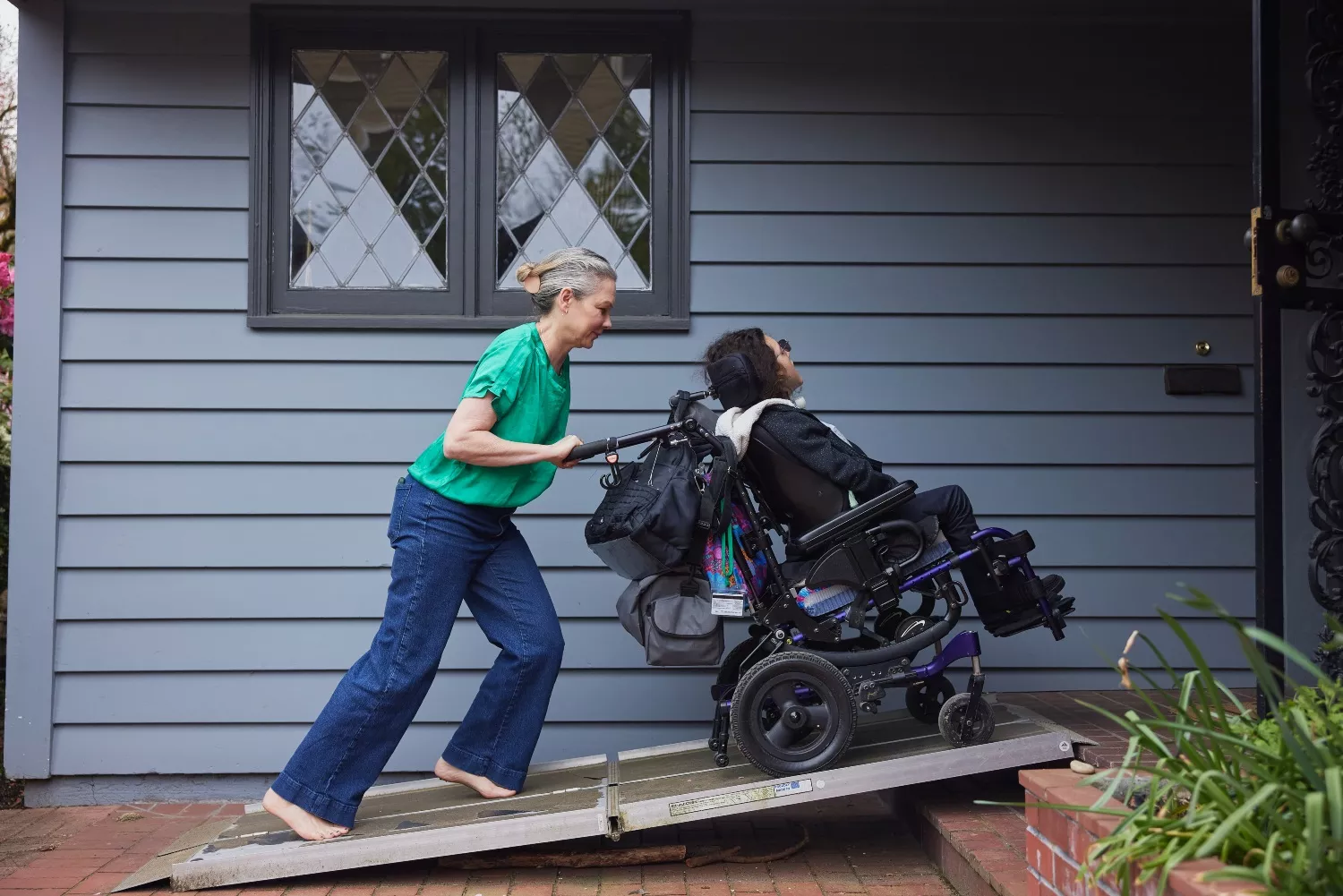Two Colville women were booked into a rural Washington jail. It became a death sentence
Critics say WA jails are letting opioid users suffer from withdrawals, leading to preventable deaths
Nurses say they’re still struggling to prevent the spread of infection among young residents

Two Providence executives who oversaw Oregon’s only skilled nursing facility for medically fragile children — where decisions to restrict the space and increase care for aging adults recently proved controversial — have resigned.
Joann Vance, director of the Providence Child Center, which houses the Medically Fragile Children’s center, and Kendall Sawa, chief operations officer for Providence Portland, are both leaving those positions this month. Attempts to reach Vance were unsuccessful, and Sawa did not respond to a voicemail asking for comment. A spokesperson said Vance’s departure is related to shifts in how the various parts of the Providence Center for Medically Fragile Children in Portland are being managed. Sawa took a job with a hospital in Washington.
The hospital is recruiting a nursing home administrator to take on oversight of the care that both children and adults are receiving in the medically fragile children’s center, said Jean Marks, Providence spokesperson.
In April, InvestigateWest reported that for more than a year, the Center for Medically Fragile Children has not accepted any of the state’s 100-plus eligible youth for short-term stays. The center has provided round-the-clock hospital-level care for children and young adults for decades.
The lack of access has left families of medically fragile children struggling to find other options for respite care, even as medical staff working at the center have also raised concerns about the standard of care that children are receiving amid staff shortages and shrinking space. Since learning of the changes, four volunteers and parents of former residents have contacted InvestigateWest to express their alarm about the impacts to families.
A space in the center was made available this month, allowing one young person to be accepted for short-term care for the first time in more than a year and a half. But outside of the leadership shakeup and a single new respite care admission, nursing staff said not much has changed inside the center to address their concerns about residents’ health and safety.

If anything, they said, things have gotten worse.
About a third of the 16 residents at the center were sick with rhinovirus as of June 12, nurses said, and one child had gone into the ICU. They reiterated concerns about the smaller unit where Providence moved the children in April, where staff said they have a more difficult time isolating sick residents.
The clear, plastic, easy-to-clean curtains that staff said they were assured would be onsite to help separate kids are on backorder. Some electrical outlets in the common areas are broken. The facility’s infection prevention specialists have pushed for hand sanitizing units to be installed throughout the center, but few have been installed, staff said.
“This is exactly what we said was going to happen and here it is,” said one nurse, who InvestigateWest granted anonymity due to her fears of employment repercussions. “No one’s responding to help us.”
Providence, however, defended its decision to place the children in the smaller space in order to create more room for adult residents in the lower floor who are not medically fragile. Additional hand sanitizer and glove dispensers are in the process of being added, Marks said.

“The current space used … is exactly the same amount of space used for this number of residents when we were at capacity,” Marks said in an email. Respite care, she said “has always been offered when space and staffing allowed.”
The center has also “routinely” isolated residents in their beds before when the population was at capacity, Marks said. Most current staff have not been working at the center long enough to have experienced it.
Meanwhile, an inspector with the Oregon Department of Human Services’ Aging and People with Disabilities Division found only one violation in a visit to the Center for Medically Fragile Children in mid-April. A resident wasn’t wearing physician-ordered hand splints, which is important to prevent the loss of range of motion, according to the inspection report. The inspector noted no other failures to meet the minimum federal and state standards for nursing home care.
Still, the nurse said, “those of us that love and work with those kids want more than the minimum for them.”
“Our kids aren’t long-term care residents, they're medically fragile children, and that's the piece that it feels like everyone’s missing,” she said. “Our population is different.”
The story you just read is only possible because readers like you support our mission to uncover truths that matter. If you value this reporting, help us continue producing high-impact investigations that drive real-world change. Your donation today ensures we can keep asking tough questions and bringing critical issues to light. Join us — because fearless, independent journalism depends on you!
— Jacob H. Fries, executive director
DonateCancel anytime.
Subscribe to our weekly newsletters and never miss an investigation.